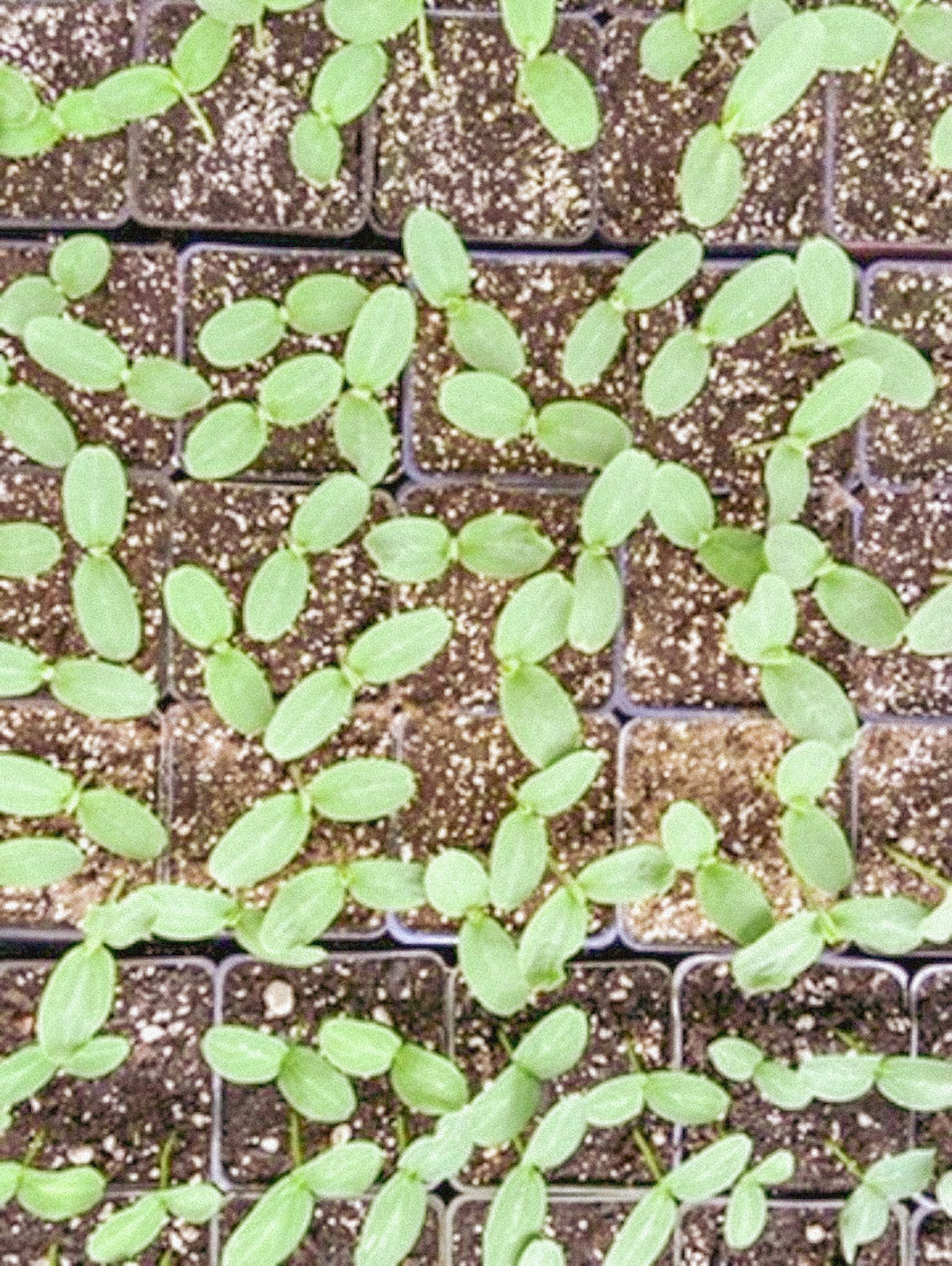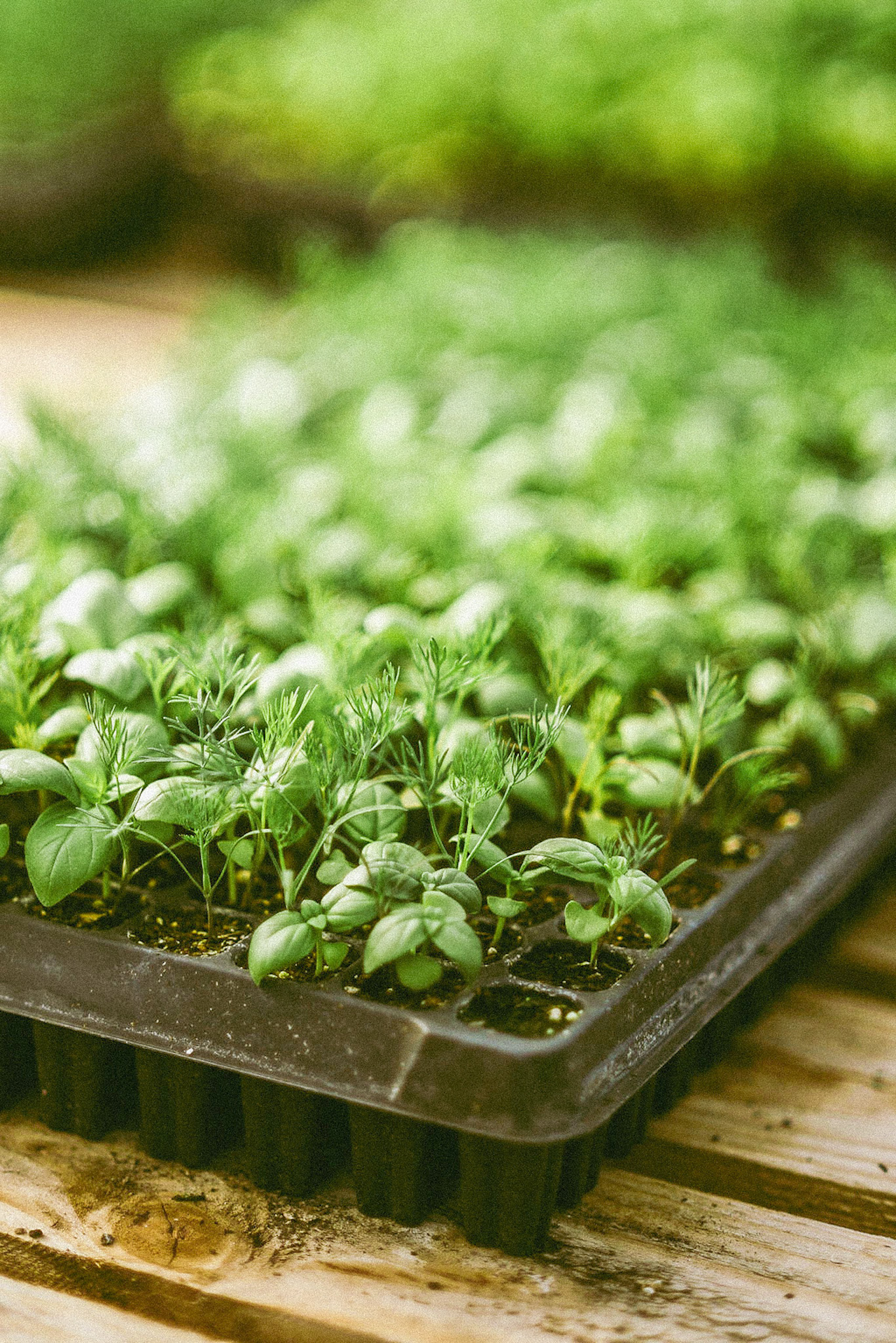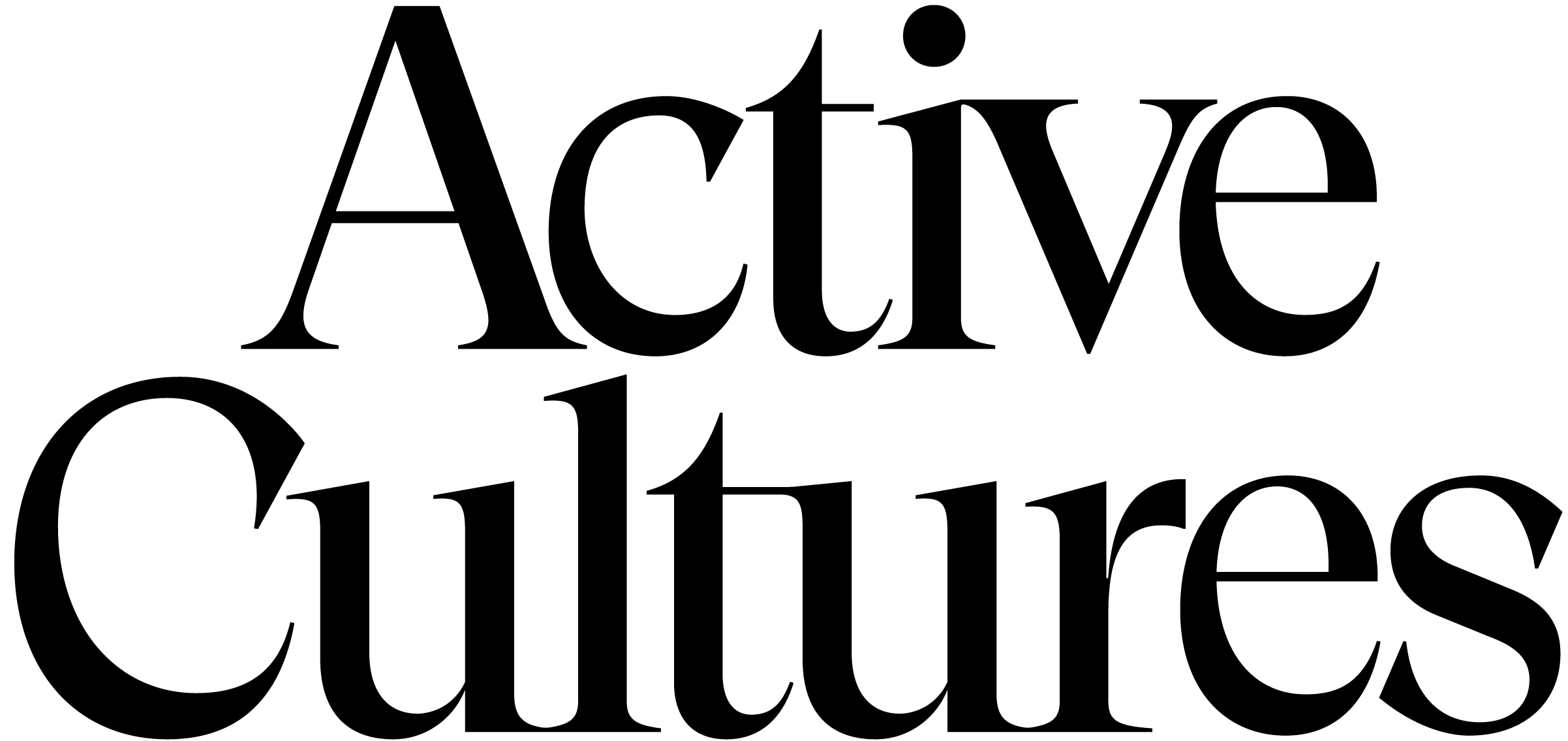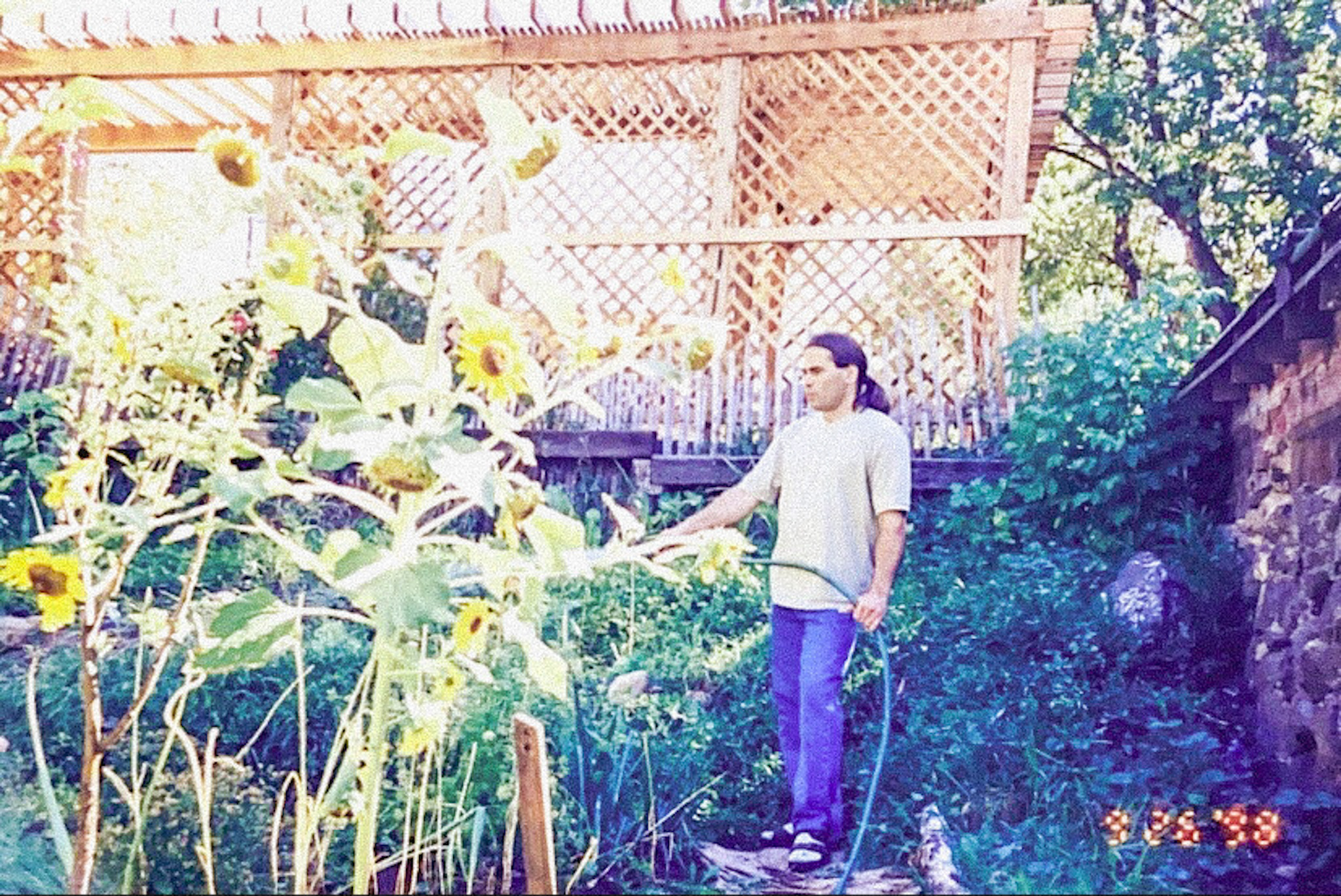“The
Harvest” was published in Active Cultures’ Digest, Issue
13, August 2022 (edited by Ferron Salniker).
Images: Kyana Moghadam, My Father, in his paradise, 1998. Courtesy of the artist.
Kyana Moghadam, Melon seeds planted by my brother in Washingston State, 2020. Courtesy of the artist.
Abbie Kunch, Garlic, harvested by my brother-- started by my father many years ago, 2020. Courtesy of Sasha Moghadam.
Abbie Kunch, A garlic bulb, held by my brother, during harvest season, 2022. Courtesy of Sasha Moghadam.
AbbieKunch, Basil interplanted with dill by my brother in Washingston State, 2022. Courtesy of Sasha Moghadam.
__
Kyana Moghadam is a writer and multimedia journalist based in Oakland, California. She's currently the senior producer of podcasts with KQED, the NPR-member station in San Francisco. Before joining KQED, she worked at Al Jazeera, VOX Media, Democracy Now! and Global Press as a reporter/producer, editor and oral historian. She's a 2019 recipient of the IWMF International Reporting Fellowship, and has won national awards for her work on podcasts at Al Jazeera and KQED. She was born in Berkeley, California and raised all over the place — and specifically in the kitchen. Kyana grew up working in restaurants in the US and UK, and believes in the preservation of food, story and shared space as a means for social change.
Images: Kyana Moghadam, My Father, in his paradise, 1998. Courtesy of the artist.
Kyana Moghadam, Melon seeds planted by my brother in Washingston State, 2020. Courtesy of the artist.
Abbie Kunch, Garlic, harvested by my brother-- started by my father many years ago, 2020. Courtesy of Sasha Moghadam.
Abbie Kunch, A garlic bulb, held by my brother, during harvest season, 2022. Courtesy of Sasha Moghadam.
AbbieKunch, Basil interplanted with dill by my brother in Washingston State, 2022. Courtesy of Sasha Moghadam.
__
Kyana Moghadam is a writer and multimedia journalist based in Oakland, California. She's currently the senior producer of podcasts with KQED, the NPR-member station in San Francisco. Before joining KQED, she worked at Al Jazeera, VOX Media, Democracy Now! and Global Press as a reporter/producer, editor and oral historian. She's a 2019 recipient of the IWMF International Reporting Fellowship, and has won national awards for her work on podcasts at Al Jazeera and KQED. She was born in Berkeley, California and raised all over the place — and specifically in the kitchen. Kyana grew up working in restaurants in the US and UK, and believes in the preservation of food, story and shared space as a means for social change.
In my mid-thirties, I am suddenly found by people who live to keep the past alive. Deep in their cupboards, tucked in glass pill bottles and porcelain tea kettles, are seeds they’ve carried and kept close. Pink radish, purple basil, and cracked cilantro. Memories of meals and people they’ve met along the way – most of them, they say, remind them of someone lost.
For the charming man who deals in dried teas, tonics, and salves, the seeds kept on a bottom shelf in his shop remind him of a land left behind. Pouches of dill, parsley, and fenugreek. He keeps a glass jar full of flavors from the homeland, and although he neither sells nor plants any of it, he shows it to willing customers – even sends those interested home with a small collection of their own.
For my found auntie in Berkeley, a glorious woman who makes me stand on the water’s edge and scream as loud as I can because she knows it’s hard for me, her collection of seeds craves her mother’s touch. In her home, every surface is storage – each glass, jar or bowl holds something that will one day fruit. Eggplants, fava beans, tomatoes, and thyme. Just like her mother, she tells me, she returns from morning walks with a pocketful of things to plant. I love her for many reasons; the public declarations of a loud life, our bond over deep loss, her desire to look towards the roots, always, for answers.
For my baby brother, it’s the seeds passed down from our father that keep an old world alive. Garlic bulbs planted and replanted for over twenty years. Tareh, the pods of a Persian leek, handed to him by our dad towards the end of his life. My brother is quick to put them in the soil – and it’s here, in the early mornings when he uncovers the beds, letting out painful cries when someone walks over a freshly planted row, that I see him as a young man for the first time. It’s here, in his quest to build a garden big enough to hold the approval of a man he barely knew in life, that I learn what it is to keep the past alive while making something new.
Seed preservation is a new concept for me. How to collect and catalog and hold them. How to tuck them into the ground, to give them a home to grow again and again – a little different, each time.
![]()
I’ve been so stuck on honoring the past, on breathing life into those things lost – on resurrection– that I rarely recognize the new. I am the eldest daughter. The record keeper. The one on the phone translating and passing information between two people and two worlds ripe for misunderstanding. Mother and father. New homeand homeland. I am the one who inherits a storybook of firsts – the first time he came to this country, the first time they met, the first time we disappeared, the first time I found him again, and the first and the last time we parted.
I carry within me all the mispronunciations. All the moments I’ve been pulled out of class to mediate. To witness. I’ve got documents on documents to show how we’ve gotten here and all the logic I need to understand how things can really change. But even with all the information, I do not know how to make things grow. I understand — a seed needs soil. A seed needs water. A seed needs light. My father would say a seed needs a song, even better, a good joke. But every time I hear my stepmother’s warning, think twice before you pass anything on, I remember how flat my jokes are and how everything I touch dies a little.
I think of the first time my ameh, my aunt, sewed little pouches of seeds into the lining of my backpack. I had come to her at twenty-two, light, with just a few changes of clothing, and a tote bag full of gifts. We met in a country between Iran and the U.S., a land where the politics of our passports allowed us to hug and cry and hold each other in the arrivals terminal. For weeks, we drank black tea before bed and rolled our sleeping mats out on the floor next to each other. We held hands when heartbreak kept me up at night and I turned my cheek when she talked to other adults about the husband she could not divorce. She held my face in the palm of her hand, taught me how to make fresh yogurt, and told me the only life worth living was one of service.
When I left, I left with bags of books I could not read, plastic jewelry for the family. Plus, one heavy garden. Melons, pomegranate, and tart limes — seeds she’d been gathering from the homeland, just waiting for a passport strong enough to smuggle them across borders and generations, to her baby brother.
Even as I packed for the airport on the night I was to leave, she ran around tucking things into bag pockets, rolling them into my socks. I found pouches of savory, tarragon, rose petals – even an apricot pit, taken directly out of her mouth and wrapped into a moist paper towel. She secured it with a small rubber band, like one she used to tie her hair back. He loves these, she said.
![]()
![]()
![]()
I’ve seen seeds smuggled in all sorts of ways. In pockets, in paper envelopes, tucked within book pages and slices of bread. Some are meant for selling, some for gifts. But the seeds my ameh sent me off with held a different purpose. To make my father, the only man she’d ever been close with, remember her. To remind him of her and what he’s meant to be planting over there.
It was her, after all, who sold her little car for a stack of cash some forty years ago. It was her, after all, who called in all her favors in America so my father would have a smooth landing. It was her who rode in the taxi to the airport, who was left standing below an empty sky, long after his plane had left.
When I walked through customs in the US, I declared nothing. I would have carried anything she asked of me.
At my father’s house, the garden grew. Peaches, plums, apples, jasmine, a variety of berries, and herbs on herbs on herbs. It was his pride. It was the first place he’d take you when you came by his house – through the door and out the back, but since you left your shoes at the entryway, he’d have a pair of slippers ready for you on the porch and then, you’d walk and taste and listen.
I think about his garden a lot. When my brother hangs the garlic out to dry. When my found auntie pops a pomegranate seed in her mouth. When the man who runs the apothecary holds a hibiscus tonic under my nose.
I think about his garden when I think about all the things he left when he came to this country. And again when he lost his home, in the last years of his life, displaced from the shade of his walnut trees, far from the rose-lined pathways he spent years carving out for himself.
In those final years, we traveled around America looking for help in places where things rarely grow – in the halls of county hospitals, the windowless rooms of emergency psychiatric wards, antidepressant after antipsychotic after antidepressant pill. The moments of peace we shared were under other people’s trees – sitting in my landlord’s yard with a game of backgammon, wisteria branches tapping on our shoulders. Revisiting that one block over and over to check on the ripeness of the big persimmon tree.
Twice, he almost died within those hospital walls. Once, he was unconscious for an entire week and when he woke, he told me he lived his life many times during that sleep and all the endings were exactly the same.
When he did die, it was in someone else’s garden. One of a German man who planted a small plumeria amongst giants – big heavy oaks and strong magnolia. I often imagine the tree he chose to take his last breath upon. I imagine pressing my back to its trunk, sliding down to sit on the ground, and look up at its branches moving in the wind. Pressing my palm on the spot where the roots dive into the soil. Pocketing a seed or two. But when I drove myself to the house, I didn’t even get out of the car. I sat across the street, not brave enough to open the door. To introduce myself. To walk through the house, and out back, into the garden.
I do not know how to make things grow, so I surround myself with those who do – thinking that if I listen enough, observe closely enough, some of whatever needs to rub off on me, will do just that.
Everyone in my family seems to have a green thumb. They plant red strawberries, fat, yellow onions, and vegetables of light green, moss green, sea green, green green green. Their gardens are full of life, and when I visit them it’s my job to carry a sharp knife and cut them down. It is my job to make something out of them.
For the charming man who deals in dried teas, tonics, and salves, the seeds kept on a bottom shelf in his shop remind him of a land left behind. Pouches of dill, parsley, and fenugreek. He keeps a glass jar full of flavors from the homeland, and although he neither sells nor plants any of it, he shows it to willing customers – even sends those interested home with a small collection of their own.
For my found auntie in Berkeley, a glorious woman who makes me stand on the water’s edge and scream as loud as I can because she knows it’s hard for me, her collection of seeds craves her mother’s touch. In her home, every surface is storage – each glass, jar or bowl holds something that will one day fruit. Eggplants, fava beans, tomatoes, and thyme. Just like her mother, she tells me, she returns from morning walks with a pocketful of things to plant. I love her for many reasons; the public declarations of a loud life, our bond over deep loss, her desire to look towards the roots, always, for answers.
For my baby brother, it’s the seeds passed down from our father that keep an old world alive. Garlic bulbs planted and replanted for over twenty years. Tareh, the pods of a Persian leek, handed to him by our dad towards the end of his life. My brother is quick to put them in the soil – and it’s here, in the early mornings when he uncovers the beds, letting out painful cries when someone walks over a freshly planted row, that I see him as a young man for the first time. It’s here, in his quest to build a garden big enough to hold the approval of a man he barely knew in life, that I learn what it is to keep the past alive while making something new.
Seed preservation is a new concept for me. How to collect and catalog and hold them. How to tuck them into the ground, to give them a home to grow again and again – a little different, each time.

I’ve been so stuck on honoring the past, on breathing life into those things lost – on resurrection– that I rarely recognize the new. I am the eldest daughter. The record keeper. The one on the phone translating and passing information between two people and two worlds ripe for misunderstanding. Mother and father. New homeand homeland. I am the one who inherits a storybook of firsts – the first time he came to this country, the first time they met, the first time we disappeared, the first time I found him again, and the first and the last time we parted.
I carry within me all the mispronunciations. All the moments I’ve been pulled out of class to mediate. To witness. I’ve got documents on documents to show how we’ve gotten here and all the logic I need to understand how things can really change. But even with all the information, I do not know how to make things grow. I understand — a seed needs soil. A seed needs water. A seed needs light. My father would say a seed needs a song, even better, a good joke. But every time I hear my stepmother’s warning, think twice before you pass anything on, I remember how flat my jokes are and how everything I touch dies a little.
I think of the first time my ameh, my aunt, sewed little pouches of seeds into the lining of my backpack. I had come to her at twenty-two, light, with just a few changes of clothing, and a tote bag full of gifts. We met in a country between Iran and the U.S., a land where the politics of our passports allowed us to hug and cry and hold each other in the arrivals terminal. For weeks, we drank black tea before bed and rolled our sleeping mats out on the floor next to each other. We held hands when heartbreak kept me up at night and I turned my cheek when she talked to other adults about the husband she could not divorce. She held my face in the palm of her hand, taught me how to make fresh yogurt, and told me the only life worth living was one of service.
When I left, I left with bags of books I could not read, plastic jewelry for the family. Plus, one heavy garden. Melons, pomegranate, and tart limes — seeds she’d been gathering from the homeland, just waiting for a passport strong enough to smuggle them across borders and generations, to her baby brother.
Even as I packed for the airport on the night I was to leave, she ran around tucking things into bag pockets, rolling them into my socks. I found pouches of savory, tarragon, rose petals – even an apricot pit, taken directly out of her mouth and wrapped into a moist paper towel. She secured it with a small rubber band, like one she used to tie her hair back. He loves these, she said.



I’ve seen seeds smuggled in all sorts of ways. In pockets, in paper envelopes, tucked within book pages and slices of bread. Some are meant for selling, some for gifts. But the seeds my ameh sent me off with held a different purpose. To make my father, the only man she’d ever been close with, remember her. To remind him of her and what he’s meant to be planting over there.
It was her, after all, who sold her little car for a stack of cash some forty years ago. It was her, after all, who called in all her favors in America so my father would have a smooth landing. It was her who rode in the taxi to the airport, who was left standing below an empty sky, long after his plane had left.
When I walked through customs in the US, I declared nothing. I would have carried anything she asked of me.
At my father’s house, the garden grew. Peaches, plums, apples, jasmine, a variety of berries, and herbs on herbs on herbs. It was his pride. It was the first place he’d take you when you came by his house – through the door and out the back, but since you left your shoes at the entryway, he’d have a pair of slippers ready for you on the porch and then, you’d walk and taste and listen.
I think about his garden a lot. When my brother hangs the garlic out to dry. When my found auntie pops a pomegranate seed in her mouth. When the man who runs the apothecary holds a hibiscus tonic under my nose.
I think about his garden when I think about all the things he left when he came to this country. And again when he lost his home, in the last years of his life, displaced from the shade of his walnut trees, far from the rose-lined pathways he spent years carving out for himself.
In those final years, we traveled around America looking for help in places where things rarely grow – in the halls of county hospitals, the windowless rooms of emergency psychiatric wards, antidepressant after antipsychotic after antidepressant pill. The moments of peace we shared were under other people’s trees – sitting in my landlord’s yard with a game of backgammon, wisteria branches tapping on our shoulders. Revisiting that one block over and over to check on the ripeness of the big persimmon tree.
Twice, he almost died within those hospital walls. Once, he was unconscious for an entire week and when he woke, he told me he lived his life many times during that sleep and all the endings were exactly the same.
When he did die, it was in someone else’s garden. One of a German man who planted a small plumeria amongst giants – big heavy oaks and strong magnolia. I often imagine the tree he chose to take his last breath upon. I imagine pressing my back to its trunk, sliding down to sit on the ground, and look up at its branches moving in the wind. Pressing my palm on the spot where the roots dive into the soil. Pocketing a seed or two. But when I drove myself to the house, I didn’t even get out of the car. I sat across the street, not brave enough to open the door. To introduce myself. To walk through the house, and out back, into the garden.
I do not know how to make things grow, so I surround myself with those who do – thinking that if I listen enough, observe closely enough, some of whatever needs to rub off on me, will do just that.
Everyone in my family seems to have a green thumb. They plant red strawberries, fat, yellow onions, and vegetables of light green, moss green, sea green, green green green. Their gardens are full of life, and when I visit them it’s my job to carry a sharp knife and cut them down. It is my job to make something out of them.

